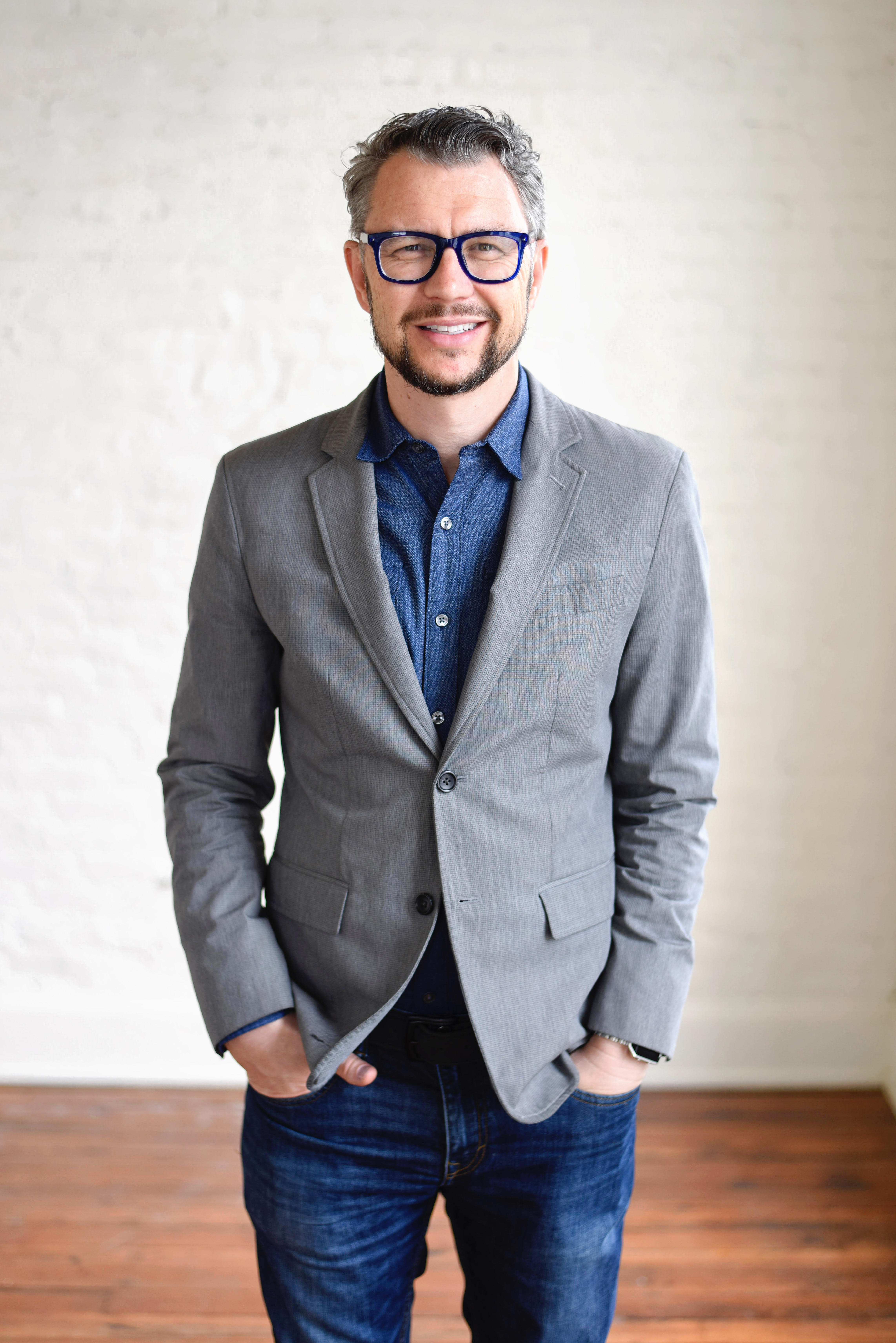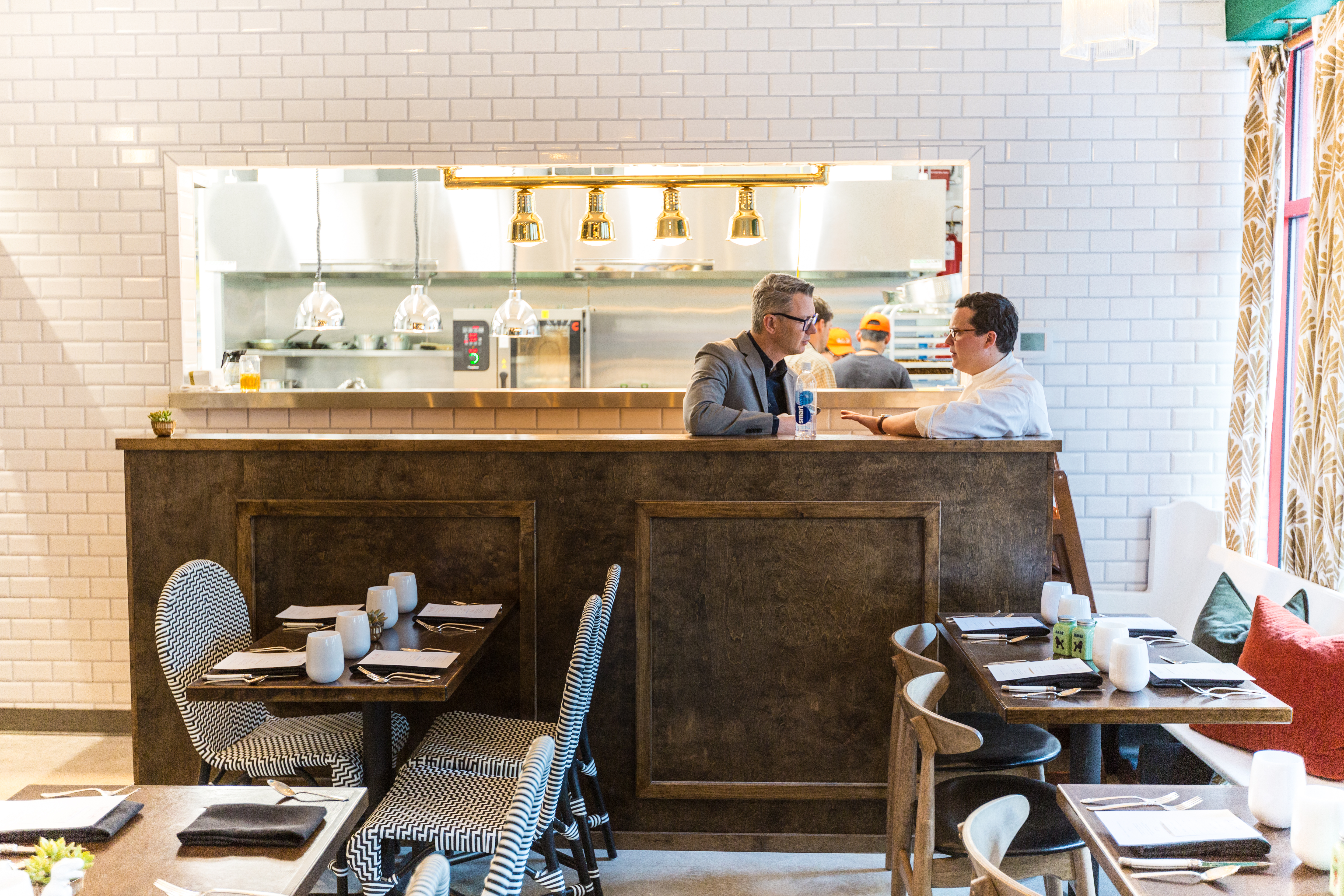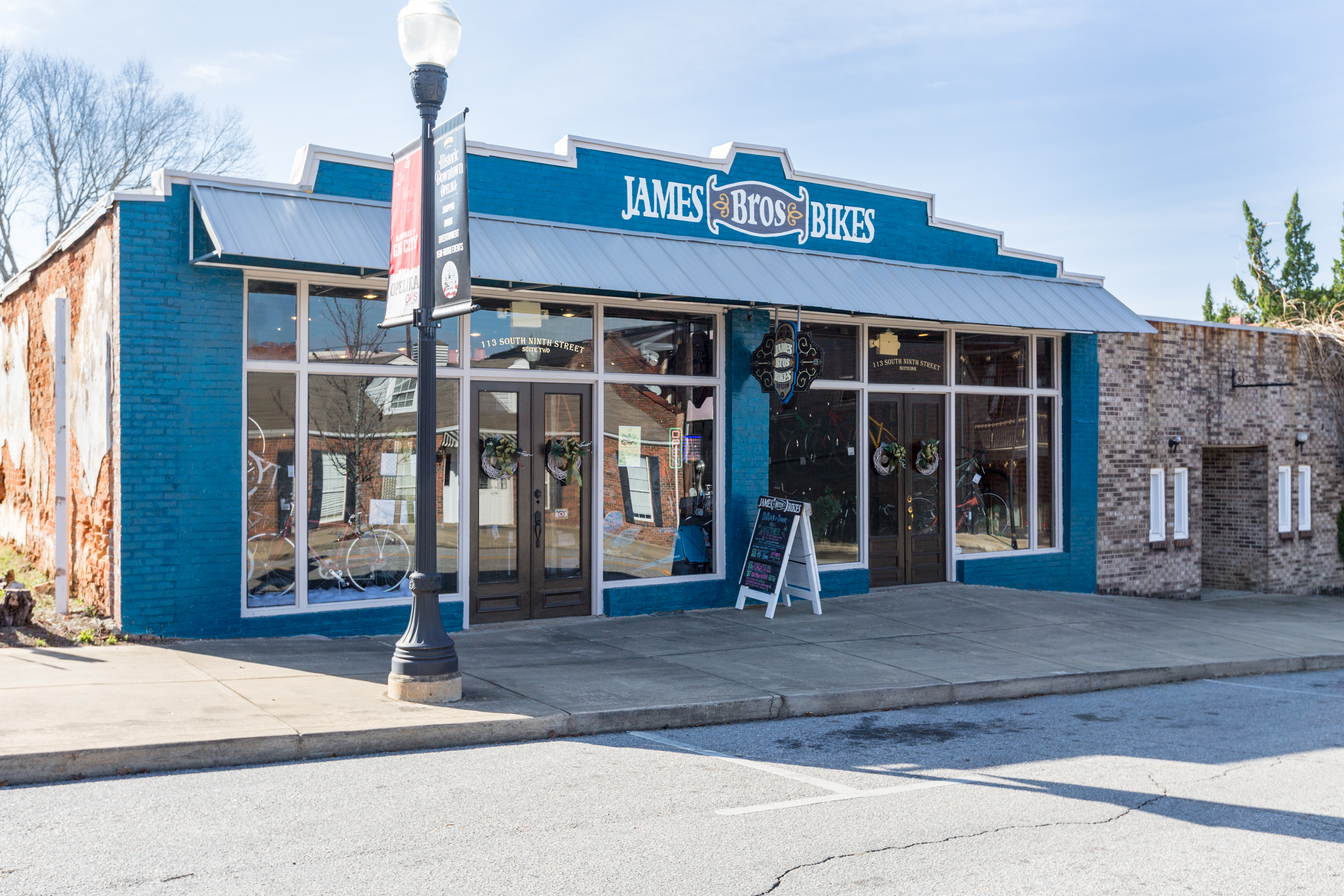Seeing Value Where Others Don’t: A Conversation with John Marsh
“There’s gold in every person if you just dig for it…” – John Marsh
A phrase I hear multiple times during a long conversation in a 150 year-old restored warehouse. It echoes throughout the building and the 10 surrounding blocks of what was once a sleepy Alabama town. It’s no coincidence that the man behind that phrase is driven by a greater purpose and conviction to redeem that which was broken. It’s the story of his life and the story of the 200 or so buildings he’s restored to change the future of Opelika, AL.
Meet John Marsh, serial entrepreneur, CEO, and founder of Marsh Collective. Passionate about bringing about redemption and restoration to people and places, John and his team see value where others don’t. Taking what they’ve learned from their experience turning Opelika into the “Gold standard for small town revitalization”, they are in the midst of restoring cities and helping people with a redemptive vision for companies, all over the country.
We sat down with John to hear more about decades of learned wisdom around business and life. Thankfully for myself, (and anyone reading this) I didn’t have to dig too hard to find gold.

CEO and Founder of Marsh Collective
Opelika, AL
Tell me a little bit of your background. How did your upbringing influence your desire for entrepreneurship and redemptive work?
My parents tried for 13 years to have a child, couldn’t and adopted me. My mom had so longed to be a mama and I think that had huge impact on me. A lot of kids don’t have this growing up but my mom and dad told me growing up, “You can do anything. You’re amazing. You‘re a world changer.” and I believed them.
I didn’t really fit in school. I made decent grades until I started chasing girls and lost my mind. I can remember feeling a call on my life all the way up until I did something I thought God and my parents could never forgive me for. I stepped across the line with a little girl. She was 12 and I was 13. I rode my bicycle to her house and we slept together and it changed everything. Once I began to rebel, I didn’t stop rebelling until it hurt too bad and cost too much.
So I had a huge benefit of a mom that loved me. I had this situation that happened to me that caused me to rebel, and by 17 years old I tried drugs for the first time and I was a drug addict until I was in my early 20’s and found myself at a really deep place.
One thing I can tell you is that we don’t change till it hurts too bad and costs too much and for a lot of people that’s slow. For me, I went fast. My dad said, “Son, you are going to have a lot of problems because motion creates friction and you want to go fast.”
So I ran into a wall at 20-something years old. My wife and I were going through a divorce, I was $1.5 million in debt, $99,000 overdrawn. I was about to hang myself and my whole life was transformed. God came and touched me and I wasn’t looking for Him. To be honest I wasn’t looking for anything, I was just in so much pain.
I kept hearing, “Kill yourself” and God kept going “die to yourself” and it sounded so simple. So instead of taking my life, I laid it down. I was absolutely transformed. Lightning struck me and every hair on my body stood up in two hours for the first time in my life. I didn’t feel the weight, the pain, suffering, the regret I felt. I felt free. I came out that place forever on fire for the work that I was going to do.
So having someone that loved me so much with unconditional love and then crashing my life extravagantly early were two things that deeply impacted me in the work I’m doing.
There’s a creator and man plans his ways but God orders steps. And so everything I’m doing today came out of tremendous pain and brokenness. There’s beauty in broken things and I can say that and have hope because you comfort others with the same comfort you’ve been comforted with. That’s the story for me.
How many businesses since that time frame would you say that you’ve started or been really involved with?
40 something.
Ok. Wow
That was a learning process. I felt like I was running for the longest time what I called a rent-a-dream program. You’d have a dream and I’d be like, “Oh, let’s do it!” It was good because I learned about startups but it was hard because I had some real mistakes.
Number one was I thought that if you don’t think you’re anything, you’ll think that if you accomplish something, anybody should be able to accomplish it. I missed the fact I had unique giftings that allowed me to do some things that I thought anybody could do because I misjudged my own giftings.
So if you don’t know yourself, you can’t grow yourself and you don’t see the world as it is, you see it as you are. That cost me millions of dollars and cost us years of our life. It was painful.

When did you find out what you’re really good at?
Six or seven years after being born again. First work I ever did was in the high-end audio business. I owned a high-end audio business, did high-end car stereos. Then I went into automobile repair business building totals and had a salvage yard. Then I went in the restoring historic houses business and moving historic houses.
I started thinking, “Well, I’m gifted with my hands. I know how to work on stuff and I have a vision to get the stuff done, maybe I’m good with my hands.” That was true. I was pretty good with my hands, but that wasn’t it. So I had to start peeling back the layers.
What’s behind everything you’ve already been successful at? There’s some real core things behind it and it’s hard to get to them. People wonder, “What am I good at?” The question should be, “what is it you’re made for by God that ends up showing up in the things you’re good at?” That is the question behind the question.
My unique gift is a gift around miracles. I love them. I want them in the lives of other people and in my life. My purpose is that people love Jesus more because they’re with me and that I leave a legacy on the hearts of men. When I’m doing that, whatever I do, I can’t lose for a minute.
I should have been bankrupt, drug addict, homeless and divorced. I was saved at a very high price. That’s what I’m about and what I’m here for. I’ve been spending 80%+ of my time doing exactly what I’m really, really gifted at and it just keeps propelling.
I’d say I feel like a mosquito in a nudist colony. Every day is full. I’ve had so much fun today in every conversation, and every person I meet. Because I’m built for it and it doesn’t drain me, it restores me.
Going back to this number of businesses question. Of these 40, what was the general motivation behind all of them and did that change over time?
It really did. It started when I was looking for meaning and purpose and the feeling of doing something. Then money started coming in and I was looking for money. Money is a physical way you can measure someone’s belief in what you’re doing. It gave me some way to assess value to the things I was doing. I became hungry for that.
But then it changed and what was once my value, I became a victim to it. I had to learn that money has laws and principles around it. Still today, I care less about the money in the work we do than I do the meaning. I struggle often times charging enough, or scaling in the way exactly we should because I can’t think of a business I built for profit. We don’t grow tired of hard work, we grow tired of meaningless work.
I do it, not just because I need the money, I want stories.
I want to know how my life has impacted someone else so that living this thing well it is a bit of a testimony to the fact that it was worth the great price that was paid to redeem an idiot. So that’s what I work for, the stories of somebody who was impacted. It’s the value that was added to them and then they saw the world differently and their lives became better and that their children’s children may be different.

What has been the most challenging business opportunity you’ve taken on and why?
I think the most challenging thing is what’s been a part of a couple of businesses and that is the fact that money and economic principles are things like gravity – you can’t ignore them. I’ve had to learn without going to school, I’ve had to learn how to be thoughtful and disciplined in the accounting, operations and team-building and building a platform and not just products.
In the beginning, I would find the need and build what people wanted. But over time, I’ve needed to build a platform. So our platform is the accounting, HR, compliance, marketing – all these back-end systems and a team that are available to do whatever we’re doing. So if I’m going to start a restaurant, I’ve got the platform. If I want to start a car wash, I got a platform. If I’m going to start a technology company, I’ve got a platform.
So taking the time to do that and the sophistication of what that really looked like took a lot of time. My focus for the last 3 years has been to have my team ready for this next season. We’ve got new dreams. I’ve got a vision of new things I want to do and I want to add value to more people and make a difference on a different level. We are going from stewarding a city to stewarding cities. We’ve had to retool to go from the work we did here with over 200 properties in our city and starting these 40 businesses to now helping 7 cities.
It’s funny. Every 7 years or so, I just had to retool and learn again. It’s really been difficult. You better love learning and changing and having to kill those old ideas and stuff you hung on to so dearly. So that’s been the hardest thing as building a platform. Building products and doing diving catches with smart people was easy. To build something that will work and where everybody’s not doing diving catches every day to make something run is a completely different set of skills.
“I do it, not just because I need the money, I want stories. I want to know how my life has impacted someone else so that living this thing well it is a bit of a testimony to the fact that it was worth the great price that was paid to redeem an idiot. So that’s what I work for, the stories of somebody who was impacted. It’s the value that was added to them and then they saw the world differently and their lives became better and that their children’s children may be different.”
What was the most common business advice you got when you’re in your 20’s? I’m guessing it had to be something like, “you need to focus on one thing and do that really well”?
I got that all the time and the fact is it looks like a failure to be as curious as I was. Nobody would have picked me to be somebody who has been able to do what we’re doing.
People would say, “You’re doing stereos? Man, there’s no future in that. You’re going to be on somebody’s couch at the rate you are going.” Or “So you’re fixing up these junky houses in the hood? Who wants to live in the hood? That is dumb!”
You see what I’m saying? All along the way my heart was pulling me and I feel that you shouldn’t get trapped in how you use it. There’s gold in every person I meet. The key is digging for it. And once you find it, how do you use the gifts you have across multiple things not being trapped in a vertical of a career, but working skills and giftings? My love is for people. If I put this love I have for people in their growth, it’s going to grow.
The worst part of a gift is when it is unrestrained. The power is in focus, and so I would say focus on the gifts and not on the career if I can recommend something.
What’s it like to work for you?
First, I’d say it’d be hard to be on the other side of me. I don’t know but I don’t feel like most people feel like they work for me. I feel like they’re going with me. I don’t want it to happen to them. I want it to happen for them. But people tell me it’s exciting but exhausting.
I would think and I hope that it’s an environment where growth is modeled and expected. People who have moved on to other things have told me how much they miss growing like that.
In your mind, what makes a great business leader?
I think first, you’ve got to know who you are. If you don’t know yourself, then you are going to be deceived. If you don’t know yourself, you are going to hurt people.
The second key is there needs to be some way to complete people and not compete with them. Most leaders compete with the rest of their team for who’s the most valuable, but when the leader feels like he’s the most blessed guy in the world to be with these folks, it changes the game.
I think leading the business is like a marriage. I tell people, “So, you want to know if I’m a good husband? Look at the face of my wife. You look in her eyes and if something that doesn’t look incredibly different, and no spark there. I’m not doing it. But I tell you what, if she looks loved and believe me a lady that’s loved look different.” The yard that looks loved looks different. Pick-up trucks that look loved look different, right?
Love is a difference-maker. So a leader without love, I think, can’t build anything great. He’s got to love his people.



You must be logged in to post a comment.